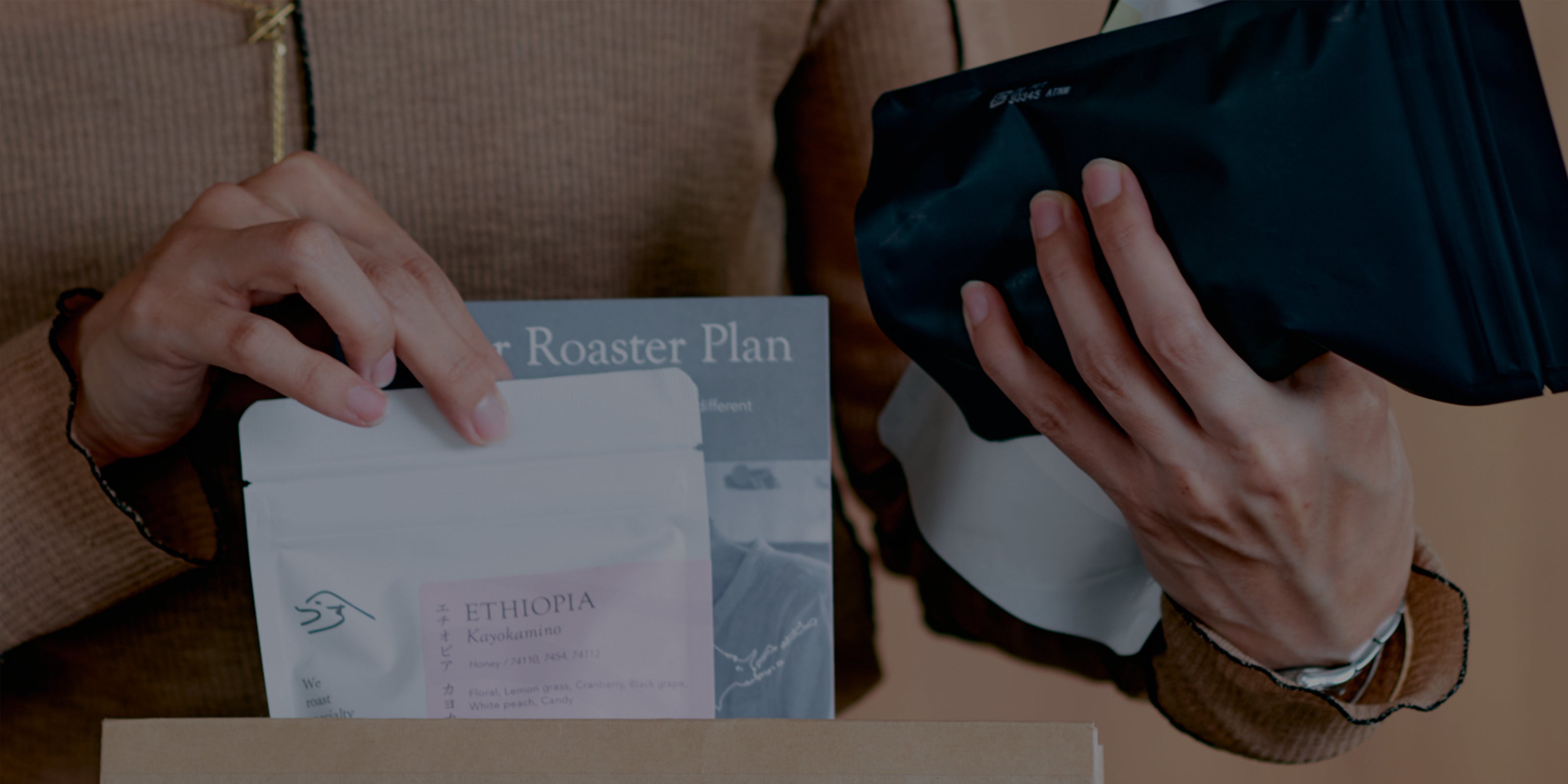![Ethiopia Choruso [light roast]](http://jp.kurasu.kyoto/cdn/shop/files/image_Beans_Single_Ethiopia-Chorso.jpg?v=1734876665&width=975)
![Ethiopia Choruso [light roast]](http://jp.kurasu.kyoto/cdn/shop/files/EthiopiaChorso.png?v=1734876665&width=1200)
![Ethiopia Choruso [light roast]](http://jp.kurasu.kyoto/cdn/shop/files/1010_ebisugawa_08.jpg?v=1734877430&width=1600)
![Ethiopia Choruso [light roast]](http://jp.kurasu.kyoto/cdn/shop/files/image_Beans_Single_Ethiopia-Chorso_jp.jpg?v=1734876665&width=975)
![Ethiopia Choruso [light roast]](http://jp.kurasu.kyoto/cdn/shop/files/image_Beans_Single_Ethiopia-Chorso_1kg.jpg?v=1734876665&width=975)
Ethiopia Choruso [light roast]
A floral aroma, flavors of peach, cherry, and black tea, a sweetness like lemon cake and a lingering aftertaste.
First roast date: Wednesday, November 6th. Orders containing this product will be shipped sequentially from Friday, November 8th onwards.
![Ethiopia Choruso [light roast]](http://jp.kurasu.kyoto/cdn/shop/files/image_Beans_Single_Ethiopia-Chorso.jpg?v=1734876665&width=975)
Introduction
Introduction
profile
Ethiopia
Chorso, Yirgachefe, Gedeo
1,900-2,200m
Heirloom
Washed Coffee Cherry Co-Fermentation
Floral, lemon cake, peach, cherry, black tea
Flavor Chart

Flavor Chart

Product introduction from staff
Product introduction from staff
What Kurasu wants to convey
What Kurasu wants to convey
Producer's story
Producer's story
プロセスと精製
プロセスと精製
Recommended Extraction Method
Recommended Extraction Method
Roasting Schedule
Roasted weekly at our roastery in Nishijin, Kyoto.
We deliver fresh beans up to 14 days after roasting.
You can enjoy the original flavor of coffee from the first week after roasting.
If you receive it early, please let the coffee rest for a while before trying it.
Also, if you are using ground beans, we recommend drinking them within about a week of grinding them.
*Please note that depending on the timing of your order, the roasted beans may not be in stock. You may have to wait until the next roasting date to receive your order.
*500g and 1kg quantities will be delivered in large wholesale bags.
*Shipping fee is 300 yen for purchases of up to 3 x 100g.
Roasting Schedule
Roasted weekly at our roastery in Nishijin, Kyoto.
We deliver fresh beans up to 14 days after roasting.
You can enjoy the original flavor of coffee from the first week after roasting.
If you receive it early, please let the coffee rest for a while before trying it.
Also, if you are using ground beans, we recommend drinking them within about a week of grinding them.
*Please note that depending on the timing of your order, the roasted beans may not be in stock. You may have to wait until the next roasting date to receive your order.
*500g and 1kg quantities will be delivered in large wholesale bags.
*Shipping fee is 300 yen for purchases of up to 3 x 100g.
Kurasuのレシピ
Kurasuのレシピ
Kurasu recipe
Kurasu recipe
Notes
Notes


![[Free Shipping] 100g x 3 types of single origin coffee set](http://jp.kurasu.kyoto/cdn/shop/files/image_Beans_Nomikurabe_single.jpg?v=1721355671&width=104)
![House Blend Dark [Dark roast]](http://jp.kurasu.kyoto/cdn/shop/files/image_Beans_Blend-Dark.jpg?v=1721354824&width=104)


